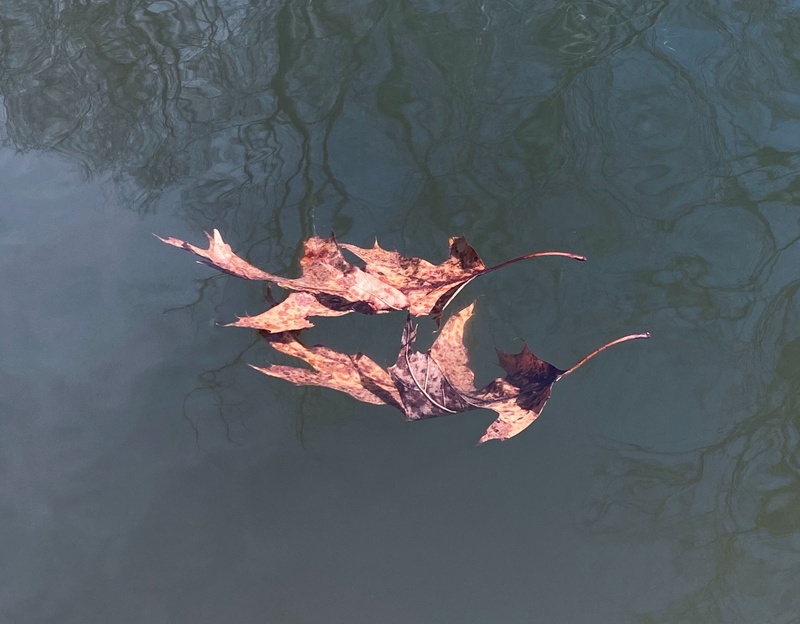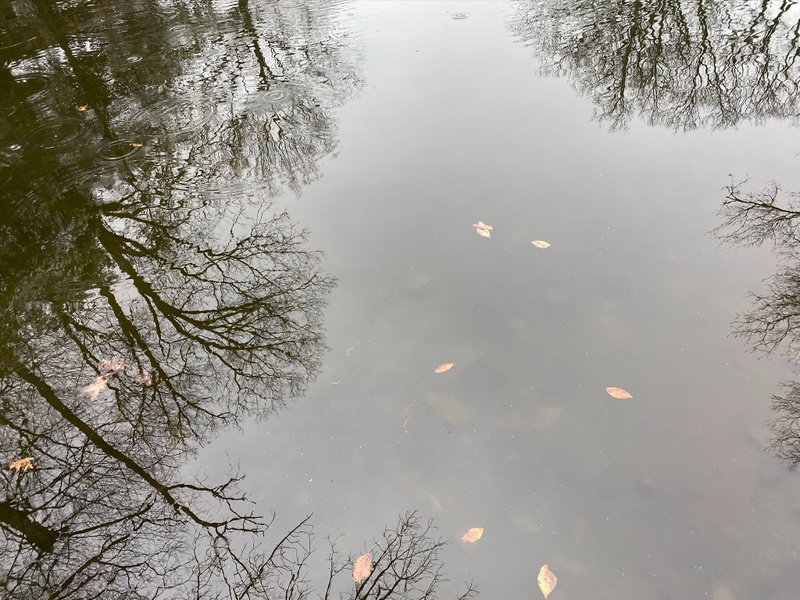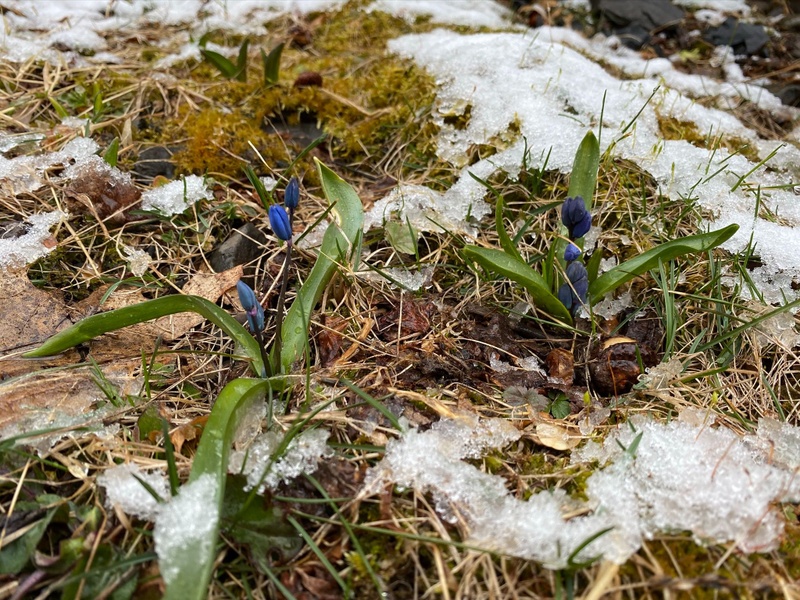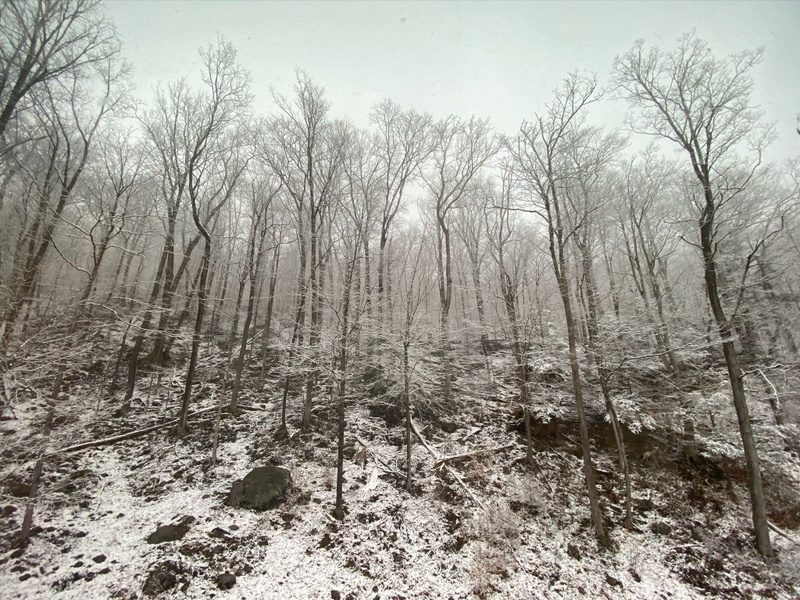On staying calm and centered

Dear TCI Readers,
We hope that if you can, you are staying put at home, and doing your best to stay healthy, calm, and optimistic. There’s no doubt that these are scary times. But even while we’re at home, and maybe feeling isolated, this can still be a time to come together in support of each other.
It’s worth remembering that even in our current situation, community still exists: When we’re physically distanced from other people, there are still ways to maintain (and create) close contact. So much of it is feeling like, even if you’re alone in your apartment, you’re still part of something—still connected, still supported. And, you are.
Dark times can teach us how to care for each other. Right now, people are banding together to create resources, fundraise, and find ways to make the most vulnerable more safe. Today we are hoping to amplify some of those efforts—please see this resource roundup we helped our friends at Kickstarter to compile, which includes financial resources for artists, general COVID-related information, and much more.
As we all work to support each other, it’s worth noting that we must remember to take care of our own personal wellbeing, too—not just physically, but emotionally and creatively. Now can be a time for introspection and focus. It can be a time to read more, to write more, to paint or draw more. Or, it can just be a time for fixing the leaky sink you’ve been putting off forever, or reorganizing your workspace. It can be hard to focus on anything other than the news, but it’s worth trying to channel panic energy into something more positive, even if just for a few minutes each day.
In the coming days and weeks, we plan to continue publishing interviews and guides for creative people, hoping they can be a kind of salve—especially if you could use a break from the news cycle. Below, we’re also sharing calming wisdom and tips from the TCI archive which we hope might help you through this stressful time.
Love, TCI

Tips for staying calm and centered
“Just breathe and focus on this moment, because it’s like none other that has come before and none that will come after. The motion of the tide is always the same, but each wave changes the face of the shore. No other moment, like this moment. No other moment, like this moment.”
[Audio] A guided meditation for re-centering your sense of self with curator Jacqueline Mabey→
⟵ ⟶⟵ ⟶⟵ ⟶⟵ ⟶⟵ ⟶⟵ ⟶⟵ ⟶⟵ ⟶⟵ ⟶
“When I feel overwhelmed or stressed or lose my center, I draw on one or all of these things. Be kind & be useful. Slow way, way down. Let the world speak to you. Rest your mind on your breath.”
Hope Hall’s “Mindset” essay offers tips for reducing stress and anxiety in moments of panic→
⟵ ⟶⟵ ⟶⟵ ⟶⟵ ⟶⟵ ⟶⟵ ⟶⟵ ⟶⟵ ⟶⟵ ⟶
“Get in your body. Frequently step away from what you’re doing. Eat lunch, go for a walk, take a shower, listen to music. This will help you remember that your brain lives in a body that needs some attention. Taking care of it will help you regain your bandwidth, restore your fluid intelligence, and get some fresh ideas back.”
Guide: How to feel like you have enough→
⟵ ⟶⟵ ⟶⟵ ⟶⟵ ⟶⟵ ⟶⟵ ⟶⟵ ⟶⟵ ⟶⟵ ⟶
“I try not to reach for my phone and look at email or social media or whatever in the morning. Instead, I try to just be quiet and spend time writing in my journal. When I don’t find time to do that is when I feel less centered. This actually comes from the book The Artist’s Way, but I really believe in it. The morning pages idea was really a revolutionary thing for me, and is so helpful. I think that’s one thing that keeps me sane. It’s so important to find quiet time for reflection, so we can explore our hearts and say whatever it is we need to say.”
Musician and vocalist Somi on how she stays focused, healthy, and sane→
⟵ ⟶⟵ ⟶⟵ ⟶⟵ ⟶⟵ ⟶⟵ ⟶⟵ ⟶⟵ ⟶⟵ ⟶
“Success is feeling like I didn’t let panic or fear ruin my day. That I was able to be present and thoughtful, and that I was able to show up. That I was able to be in the day and creatively, thoughtfully responding and not reacting to what was happening.”
Astrologer Chani Nicholas’ ideas on how to stay calm and present even in chaotic situations→
⟵ ⟶⟵ ⟶⟵ ⟶⟵ ⟶⟵ ⟶⟵ ⟶⟵ ⟶⟵ ⟶⟵ ⟶
“Although we might feel that situations are urgent, sometimes the most radical course is to slow down so we can be intentional and thoughtful… [That] might sound like taking a shower or it might sound like mid-day rain. It sounds like a moment of reflection. The ideal rhythm will allow you to treat people as humans, treat yourself as a human, and give you space to visualize and build with intention.”
Artist and arts manager Shey Rivera Ríos on decolonizing your creative practice→
⟵ ⟶⟵ ⟶⟵ ⟶⟵ ⟶⟵ ⟶⟵ ⟶⟵ ⟶⟵ ⟶⟵ ⟶
“If you are feeling awake while trying to fall asleep, leave the bedroom. Engage in an activity that is boring, such as folding clothes. Don’t turn on the TV or computer, keep the lights low, and keep your activity slow and non-stimulating. Then return to your bedroom in about 30 minutes, and try to fall asleep again. If you’re still awake in 15 minutes, get out of bed and repeat.”
A creative person’s guide to feeling healthy→
⟵ ⟶⟵ ⟶⟵ ⟶⟵ ⟶⟵ ⟶⟵ ⟶⟵ ⟶⟵ ⟶⟵ ⟶
“Overall, anxiety does seem to be up. Diet and exercise have profound effects on our mental health, but sometimes our brains need additional assistance. I hang out with a lot of creative people, and many of them use psychotropic meds and/or talk therapy… If your brain chemistry betrays you, treat yourself the way you would treat a friend in a similar situation: with gentle care.”
Some thoughts on how to feel good from Thor Harris→

Ideas for channeling your energy into something useful while at home
Try writing a poem…
“The best way to start writing poems is to simply… write a poem. If this seems easier said than done, or if the horror of the blank page feels too overwhelming, just give yourself a little nudge. Write about where you are and how you feel at this very moment.”
⟵ ⟶⟵ ⟶⟵ ⟶⟵ ⟶⟵ ⟶⟵ ⟶⟵ ⟶⟵ ⟶⟵ ⟶
…or making a zine…
“So, what makes a good zine for YOU to work on? Think about what topics you could you go on and on talking about for hours. Then, let your imagination run wild and see what exciting, novel, or curious ideas you come up with.”
⟵ ⟶⟵ ⟶⟵ ⟶⟵ ⟶⟵ ⟶⟵ ⟶⟵ ⟶⟵ ⟶⟵ ⟶
…or journaling and making to-do lists…
“I try to pray and do daily reflection books and journal a couple pages. It helps me dump out my thoughts before the day even starts, to just sort of clear myself and be like, ‘Okay, where do I need to go for the day?’ Usually I make a to-do list, and usually when I make my to-do list is when I’m evaluating what kind of work needs to be done, like, “What’s the priority?” I think I’m also just trying to be honest with myself about how many hours are in a day.”
Marlee Grace on how to be productive without burning out
⟵ ⟶⟵ ⟶⟵ ⟶⟵ ⟶⟵ ⟶⟵ ⟶⟵ ⟶⟵ ⟶⟵ ⟶
…or meditating on the meaning of your creative practice & life…
“Recessions are a meditative moment. I know this sounds nuts, but it’s true. For the first time in many years, as a person normally shuffling between gigs, you are going to have tons of time on your hands. You can either spend it angsting at your fate, paralyzed with fear, or you can use the weeks and months of downtime to ponder your practice, and your life.”
[Guide] How to recession-proof your creative practice→
⟵ ⟶⟵ ⟶⟵ ⟶⟵ ⟶⟵ ⟶⟵ ⟶⟵ ⟶⟵ ⟶⟵ ⟶
Looking for more to do and read while at home? Our Library has tons of book recommendations, downloadable zines, and worksheets. And, our Archive contains practical and emotional guidance on topics like starting something new and feeling healthy, from over 850 working artists. If you dig in to any of these resources while staying at home, reach out to us by email (info@thecreativeindependent.com) and let us know what resonated. <3
Lastly, reach out for support—and to support others
If you need support, here are useful tips for asking your community for help:
“Most people don’t realize that when you ask [for financial or emotional support], you’re not just creating an opportunity for yourself—you’re also giving your supporters an opportunity to engage more deeply with you and your work. Asking gives a person the opportunity to experience all of the positive feelings and thoughts that can come along with giving.”
⟵ ⟶⟵ ⟶⟵ ⟶⟵ ⟶⟵ ⟶⟵ ⟶⟵ ⟶⟵ ⟶⟵ ⟶
Check in with your community:
“Something I’ve been working on is staying in close touch with my support system. I don’t think I would have survived this long if I hadn’t been able to text or call my friends on a regular basis.”
⟵ ⟶⟵ ⟶⟵ ⟶⟵ ⟶⟵ ⟶⟵ ⟶⟵ ⟶⟵ ⟶⟵ ⟶
Use your creativity to connect with others:
“Most people struggle with a lot of stuff and often we need help figuring out how to deal with our feelings. When it comes to sadness, particularly people who struggle with depression, there is usually this feeling that you’re gonna feel this way forever. People need to have hope that there’s the possibility they can get out of it, that these feelings will eventually go away. I often think the best way to feel that is to hear the words of somebody who knows exactly what that feels like. That’s the value of art or literature, hearing one person saying, ‘This is what I’ve been through.’”
Musician Aimee Mann on writing sad songs→

Photos of floating leaves, budding siberian squill, and trees covered in today’s spring snow taken in upstate NY by TCI’s Willa Köerner and her partner Daniel Morgan.
